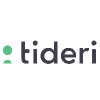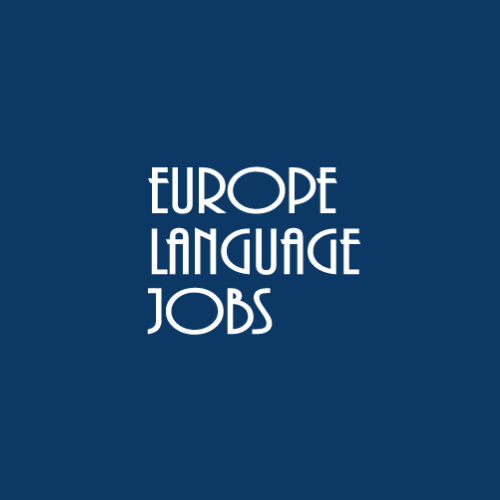During the COVID-19 pandemic, one of the most affected industries was - unsurprisingly - tourism. As unemployment rates are getting higher candidates with experience in hospitality are venturing towards new career opportunities. Here we discuss the 5 transferable skills, you can use to reinvent your career.
Both sectors rely heavily on two things: customer-orientated mindset, and a good marketing plan that can keep prospects happy and keep them coming back. There are many similarities between both professions, but what are those hospitality skills that can help one smoothly transition into a marketing role?
1. Communication
In tourism, being a natural communicator plays a crucial role. Dealing with people of different cultures, backgrounds, and ages is an everyday routine. Being able to communicate clearly with them and with your team's members is of great importance.
You need the same skill in marketing, for the same reason. Loyalty, trust, and authority won't happen overnight. You'll need to be able, as a marketer, to communicate a message clearly to people of different backgrounds, educational levels, cultures, etc., especially when you're in an environment as high-pressure as a marketing position.
2. Customer service
Some may argue that communication and customer service are the same thing. Others will say that one stems from the other. While this is not entirely false, communication can make or break your customer service.
Being able to keep a customer happy and coming back is essential; this is why most brands in the tourism industry invest a lot in improving customer service skills.
Happy customers are the core of any industry, and the same goes for marketing. Marketers need to be on their toes and thinking of solutions, always. Even when - or better, especially when - they need to impress a demanding customer or a big brand, it is imperative to be polite, resourceful and collected. The better the experience, the better the feedback and, eventually, the higher the authority.
3. Culture and language
A great hospitality agent can surpass language and cultural barriers to keep a customer happy and satisfied.
Working with people from abroad is a real possibility too. One needs to be educated in different cultures and languages, especially if they want to be respectful to their fellow employees and customers.
If, as a marketer, you want to approach a more diverse audience, you need the same skill. You can't use the same way to deliver a message to everyone, as a chunk of your audience may not share the same set of beliefs as you. You need to be agile, resourceful, and manage to convey a message that every marketing segment of your audience will understand and identify with.
Of course, being culturally educated comes with being educated in different languages as well. More languages mean more diverse clientele, and you need this as a marketer just as much as a travel agent does.
Overcoming the language barriers allows you to aim for more responsibilities, higher positions, and a broader market.
4. Flexibility and being organized
A tourism job requires constant shifts, and a marketer's position has no schedule as creative marketers are forever thinking of their next step.
A job in tourism can teach a marketer to be flexible and work smarter, not harder when it comes to developing their skills and tackling difficult situations. For example, convincing a prospect may be tricky, or creating a loyalty program as a marketing action for a product may not be something a prospect is familiar with. This would be the time for your flexibility to shine.
None of the above can happen without exceptional organizational skills, though, and if you don't realize that every minute counts, both in tourism and in marketing. Organizational skills are almost a prerequisite in the marketing business. Therefore, make sure to plan each day. Keep a list of daily tasks for the days to follow and cross them out when you're finished.
5. Commitment, enthusiasm, and multitasking
You may argue that all jobs require commitment, and you'll be correct. However, the tourism sector is so demanding that it takes a different type of dedication and enthusiasm to remain loyal to the tourist field.
The same goes for marketing. Marketers are some of the most committed professionals in any industry, always striving to convey a message to their prospects, whether they aim to inform, generate sales, or raise awareness.
It takes a genuinely enthusiastic person to complete the task above. Both marketing and tourism are demanding sectors, and being able to take upon any job with enthusiasm is almost a prerequisite.
Being proactive, resolving a difficult problem, convincing a cranky or dissatisfied customer, or even brainstorming ideas that can be forwarded to prospects or clients are essential elements and will be appreciated in the long run.
And since both tourism and marketing need excellent organizational skills, as I mentioned above, a marketer or a professional in tourism needs to multitask like a pro. Multitasking helps employees work smarter and not harder, complete the checklist as mentioned earlier, and, finally, keep both customers and employers happy, as well as themselves.
The Takeaway
While marketing is a field that can correlate with every sector, hospitality skills can be essential for a marketer - and vice versa. Since a marketer's top priority is customer satisfaction and the tourism sector is built on customer satisfaction, both sectors can benefit from the other's skill set.
About the Author

Virginia Zacharaki is the Marketing Communications Associate of Moosend, a highly competitive Email Marketing, and Marketing Automation platform. Passionate about knowledge, art, teaching, and creating. Tends to live as a ballerina bookworm.














Florence Okenwa1y ago
I found this article very useful and quite informative.
I found this article very useful and quite informative.